Robert Boyle was an Anglo-Irish scientist who is famous for Boyle’s Law, his air pump and for his renowned work The Sceptical Chymist, due to which he is considered by many as the Father of Modern Chemistry. He helped found the Royal Society, wanted to unravel the secrets of alchemy and was deeply religious. Know more about his life, inventions and other accomplishments through these 10 interesting facts.
#1 HIS FATHER HAS BEEN DESCRIBED AS THE “FIRST COLONIAL MILLIONAIRE”
Robert Boyle was born on 25 January 1627 in Lismore Castle, County Waterford, Ireland. His father Richard Boyle was the 1st Earl of Cork, Lord Treasurer of the Kingdom of Ireland, among the wealthiest men in Britain and has been described as the “first colonial millionaire”. Robert Boyle was his seventh son and fourteenth child with his second wife Catherine Fenton. Due to the position of his father, Robert received the best education from various prestigious schools, including Eton.
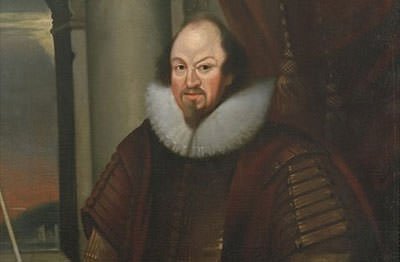
#2 HE IMPROVED UPON GUERICKE’S AIR PUMP
Otto von Guericke had designed an air pump but it needed two men to operate it, required great effort and was not very efficient. Along with Robert Hooke, Boyle set about making improvements in Guericke’s air pump. This led to the creation of their famous “machina Boyleana” or “Pneumatical Engine” in 1659.
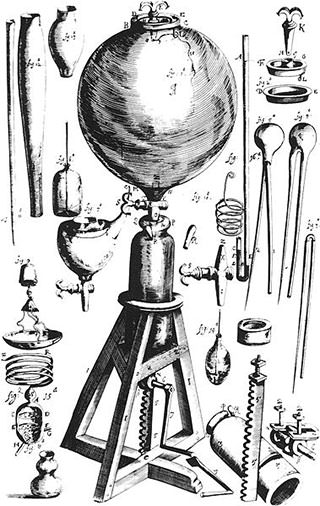
#3 ALONG WITH ROBERT HOOKE, HE DISCOVERED SEVERAL CHARACTERISTICS OF AIR
With the help of their machine, Boyle and Hooke conducted a series of experiments on the properties of air. In 1660, Boyle published his first scientific work, New Experiments Physico-Mechanicall, Touching the Spring of the Air and Its Effects. In it he wrote about the discoveries they made with the help of the air pump. Boyle and Hooke discovered several physical characteristics of air, including its role in combustion, respiration, and the transmission of sound.
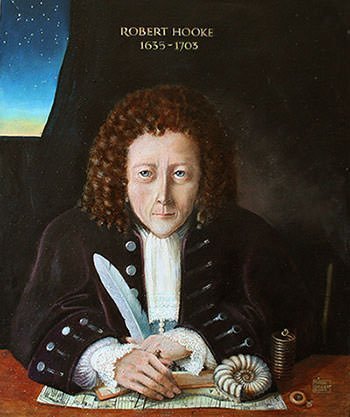
#4 ROBERT BOYLE IS CALLED THE FOUNDER OF MODERN CHEMISTRY
In 1661, Robert Boyle published probably his most important work The Sceptical Chymist. The book rejects the then prevalent Aristotelian theory of the four elements (earth, air, fire, and water) and Paracelsian notions about the composition of matter. It presents Boyle’s hypothesis that everything was composed of minute particles (atoms) of a single universal matter and that every phenomenon was the result of collisions of particles in motion. It is primarily due to this book that Robert Boyle is often called the founder of modern chemistry.
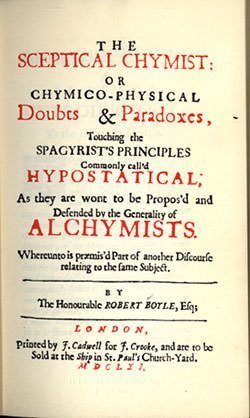
#5 He WAS NOT THE FIRST ONE TO NOTE BOYLE’S LAW
Robert Boyle is most famous for Boyle’s Law, which states that in a closed system the pressure exerted by a gas is inversely proportional to its volume provided the temperature is constant. This relationship between pressure and volume was first noted by Richard Towneley and Henry Power. But it was Robert Boyle who confirmed their discovery through experiments and published the results in 1662. French physicist Edme Mariotte discovered the same law independent of Boyle in 1679 due to which it is also known as Mariotte’s law
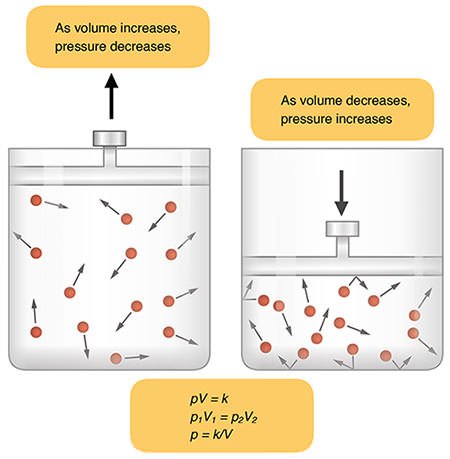
#6 He MAINTAINED A LIFELONG PURSUIT OF TRANSMUTATIONAL ALCHEMY
Apart from Boyle’s law and properties of air, other contributions of Robert Boyle towards science include making the distinction between mixtures and compounds; and investigations on the expansive force of freezing water, on specific gravities and refractive powers, on crystals, on electricity, on color, on hydrostatics, etc. Interestingly he was also an alchemist and worked to discover the secret of transmuting base metals into gold.
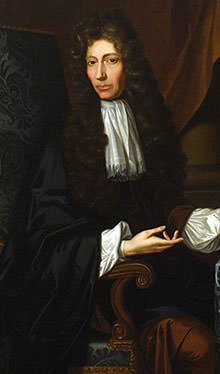
#7 HE HELPED FOUND THE ROYAL SOCIETY OF LONDON
Robert Boyle helped found the Royal Society of London, which was the world’s first scientific body and remains the leading national organization for promotion of scientific research in Britain. He was one of the twelve men who met after attending a lecture of Sir Christopher Wren on November 28, 1660 and resolved to set up a society for promoting scientific learning through experiment. In 1680, Boyle was elected president of the Royal Society but declined as he was required to take an oath which was against his strict religious beliefs.
#8 HE PREDICTED SEVERAL MODERN INVENTIONS
Robert Boyle made a “wish list” of 24 possible inventions. It included drugs to appease pain and aid sleep, prolongation of life, the art of flying, perpetual light, light and extremely hard armor, unsinkable ships and curing disease by transplantation. The list is remarkable considering it was made in the 17th century and because only a few of the 24 inventions have been realized as yet.
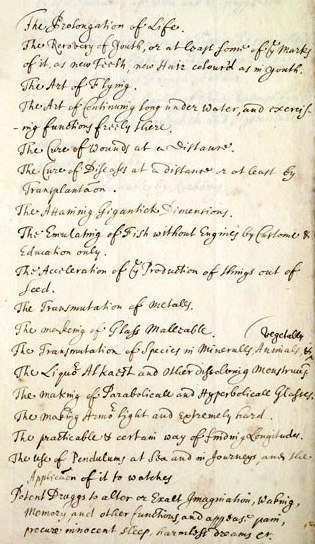
#9 HE WAS DEEPLY RELIGIOUS
Robert Boyle was a devout and pious Anglican and is noted for his writings in theology. His religious writings were mostly devotional in his youth but they turned more philosophical as he grew. He was worried about the rise of atheism and worked towards proving that science and religion were mutually supportive. He wanted Bible to be available in the language of the people and personally financed its printing in Irish. Also as director of the East India Company, he spent large sums in promoting the spread of Christianity in the East.
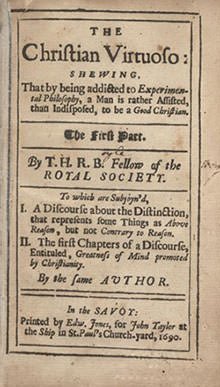
#10 HE HAD A CLOSE RELATIONSHIP WITH HIS SISTER KATHERINE JONES
Robert Boyle never married. He had a close relationship with his sister Katherine Jones with whom he spent most of his mature years. They shared scientific ideas and edited each others manuscripts. Boyle suffered from ill health most of his life. He died on 31 December 1691 from paralysis, just a week after the death of his sister Katherine. Under the terms of his will Boyle endowed a series of lectures in defense of Christianity. Known as Boyle Lectures, they were revived in 2004 and continue to this day.

